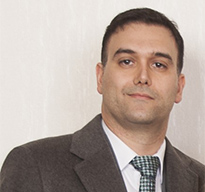Overview of Pure-Solvent and Steam-Solvent Analysis and Design for Thermal In-Situ Operations
Disciplines: Reservoir
Course Description
This 1-day course is an introduction to thermodynamics and pressure-volume-temperature (PVT) and tuning parameters to fit laboratory data. Different analytical models for oil rate predictions such as Butler-Mokrys (1989) and Dunn-Nenniger-Rajan (1989) models will be discussed.
Topics:
- Introduction to thermodynamics and pressure-volume-temperature (PVT): basic law such as: Clausius-Clapeyron Equation, Dalton's law, Henry's Law and Raoult’s law are explained and practical examples such as temperature reduction in chamber due to NCG injection, and temperature reduction at Azeotropic point in ES-SAGD process will be solved numerically.
- Pure Solvent Modelling: processes such as VAPEX and Nsolv will be explained, and different theories explaining the pure solvent oil rates such as Butler-Mokrys (1989) and Dunn-Nenniger-Rajan (1989) models will be explained and compared to physical models. Concepts such as onset of asphaltene precipitation will be discussed.
- Steam-Solvent Modelling: ES-SAGD process will be explained and Gupta-Gittins(2012) and Rabiei–Harding–Abedi (2017) models will be discussed and numerically compared.
- Production Challenges in Solvent Operation: Liquid-pool model and concept will be explained and concern with steam trap control for Nsolv will be discussed and numerically explained.
Upon completion of this course, participants will be:
- Familiar with fundamentals of phase behavior modeling
- Able to carry out simple phase-equilibria calculations
- Make assumptions made in solvent analytical models for oil rate prediction
- Understand benefits and limitations of pure-solvent and steam-solvent processes
Learning Level
Intermediate
Course Length
1 Day
Why Attend
SAGD is an energy-intensive process with large amount of greenhouse gas (GHG) emissions and required water treatment. One option to reduce emissions and water treatment are solvent recovery techniques such as Solvent Driven Process (SDRP), expanding-solvent SAGD (ES-SAGD) and Nsolv processes. Such processes aim to use thermal and compositional mechanisms to increase the mobility of the bitumen-rich phase near the chamber edge. This course presents the fundamentals of these technologies and also provide an intermediate level understanding of PVT analysis and modeling of such processes.
Who Attends
Reservoir and production engineers, reservoir simulation engineers, technology development leaders that are involved in forecasting and evaluation of solvent thermal recovery development and design.
Special Requirements
- Students will need laptops.
- Participants should have understanding on PVT basics such as saturation curve.
- Participants should have basic knowledge of Microsoft Excel.
- Participants should have moderate experience or exposure to the topic.
CEUs
0.8 CEUs (Continuing Education Units) are awarded for this 1-day course.
Cancellation Policy
All cancellations must be received no later than 14 days prior to the course start date. Cancellations made after the 14-day window will not be refunded. Refunds will not be given due to no show situations.
Training sessions attached to SPE conferences and workshops follow the cancellation policies stated on the event information page. Please check that page for specific cancellation information.
SPE reserves the right to cancel or re-schedule courses at will. Notification of changes will be made as quickly as possible; please keep this in mind when arranging travel, as SPE is not responsible for any fees charged for cancelling or changing travel arrangements.
We reserve the right to substitute course instructors as necessary.
Instructor

Mazda Irani is acting as a CTO of Ashaw Energy. He is currently engaged in the designing and optimization of Steam Assisted Gravity Drainage (SAGD) and proper near wellbore modeling for the SAGD wells. One of his main tasks is to help and develop a software that can help operators run their SAGD wells at optimum subcool, manage the hot spots, and modify their FCD design in heterogeneous reservoirs. He published a trilogy paper named “On Subcool Control in Steam-Assisted-Gravity-Drainage Producers."
Dr. Irani was previously employed in technical and supervisory roles with Cenovus Energy, Suncor Energy, RPS Energy, and C-FER Technologies. He has published and presented more than 40 technical papers on different aspects of SAGD operation. Dr. Irani holds a PhD in petroleum engineering (U of C 2017) and geomechanics (U of A 2012) and three Masters degrees in petroleum engineering, geotechnical engineering, and structural engineering.
Other courses by this instructor
Mazda Irani
This 1-day course is an introduction to all analytical models assumptions and mathematical principles and their limitations and also discusses. In this course there will be examples using Excel spreadsheets. In this course solvent applications are not ...
(Read More)Disciplines: Reservoir
Mazda Irani
This 1-day course is an introduction to design and optimization of Flow-Control-Devices (FCDs) and to thermodynamics and pressure-volume-temperature (PVT) in horizontal wells in Thermal Recovery Operations for both SAGD and SA-SAGD. The interaction bet...
(Read More)Disciplines: Reservoir
Mazda Irani
This 1-day course is an introduction to analysis and design of the geothermal reservoir and wellbores. The following topics will be covered:
Analysis of Geothermal Reservoir:
- Introduction of geothermal reservoir
- Conduction and convection in the ge...
Disciplines: Reservoir
Mazda Irani
This 1-day course is an introduction to design and optimization of Inflow-Control-Devices (ICDs) in horizontal wells in conventional reservoirs. The gas-breakthrough and water-cresting/coning is the main reason of failures during such operations. The f...
(Read More)Disciplines: Production and Operations
Mazda Irani
This one-day course is an introduction to gas-liquid flow patterns in horizontal pipes for complex case of steam at saturated condition at injector; gas-lifting at producers and steam hammer envelopes are discussed. Different two-...
(Read More)Disciplines: Completions | Drilling and Completions
